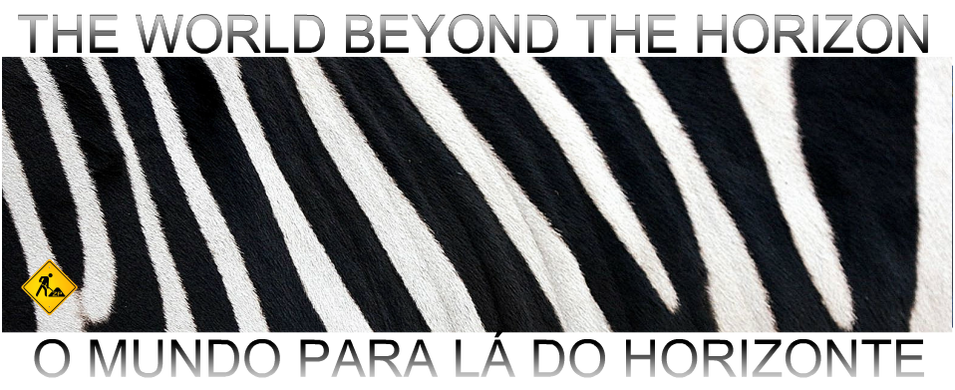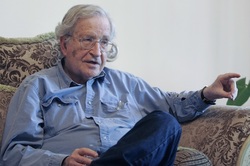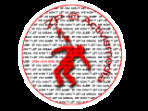Deep Anger
We need to rediscover something we lost along the way.
Darren Fleet with Stefanie Krasnow,06 June 2014
In a better world, there’d be no reason to write this. In that world, plastic bags would be outlawed, rednecks would voluntarily stop driving those obnoxious Ford F-350s and the yogis in yuppie neighborhoods would stop believing that a hybrid SUV could save the planet. But that’s not the world we live in.
In this world, when push comes to shove, most of us are too comfortable to care,too polite to speak
out. With so much at stake we need to rediscover something we lost along the way: our anger.
I’ve been around a while now and all I can say is that everything has gotten worse. Deforestation.
Species extinction. Overfishing. Melting glaciers. CO2 through the roof. We wona few symbolic victories here and there, but the big picture is total loss. And that’s why this isn’t your standard a-better-world-is-possible-peace-and-love-we’re-all-in-this-together-be-the-change-you-want-to-see circle jerk that has become the cachet of an entire generation of professional
activists.
I’m a child of the “awareness generation,”the one who grew up learning to reduce, reuse and recycle. I remember first learning about global warming and climate change in high school in the 90s. Back then it was called the Greenhouse Gas Effect. Most of my early environmental knowledge came from classroom videos about acid rain, slash-and-burn logging in the Amazon and the hole in the ozone layer. There was also the slogan “think globally, act locally” plastered across my Social Studies 11 class wall. Those of us who cared two cents about anything believed in that mantra religiously, even though by that point almost everything around us—the school supplies, the clothes on our backs, even the food in our stomachs—came from across an ocean.
At the same time that we were learning to be more conscientious about our market choices, the global bazaar was pried open by the WTO, NAFTA and GATT trade regimes, effectively eliminating any possibility we had to make truly environmental choices. Before we were even old enough to know about our carbon footprint, it was already ten times that of a kid in the developing world. Meanwhile, our history books were full of inspirational Gandhi, MLK and Mandela quotes, all
driving home the point that change, even revolution, was sentimental, nice, easy, positive. The first time the cops threatened to arrest us at an environmental protest, we shit our pants. Turns out positivity has its limits. And that’s exactly how we got into this mess.
There’s nothing worse than interorganizational bitching, especially among environmental campaigners and NGOs. We’re like a bunch of abused children taking out our frustrations on each other when we should be unified and directing our focus
elsewhere. But since we don’t have the collective gumption to stand up to the man, we squabble among ourselves; it’s the only way to release the impotent rage we all feel. Even so, I have this to say: every time I see one of my environmental heroes jump on the corporate bandwagon to say some stupid-ass shit about how there are no sides in the climate struggle — how pessimism is an affront to the imagination — my heart breaks.
Recently, best-selling environmental author, TED talker, anthropologist and National Geographic explorer-in-residence Wade Davis went down that road. In an interview with a Vancouver newspaper he reflected proudly on his days as an energy company consultant, saying, “In all these resource conflicts, there are no enemies, only solutions.” This kind of well mannered sweetness, in the face of such a violent problem, is our greatest problem.
So if we’re going to get serious about disrupting an increasingly apocalyptic horizon, we’ve got to challenge the feel-good Hallmark sentiments that inundated my generation. We have to say fuck the TED talks, with their sincere but vacuous optimism. Fuck the positivity gurus claiming the world is not dying, it’s only changing. And fuck environmentalists willing to play nice with Big Oil and Big Energy, saying things like: “you’re not going to stop the tar sands. It’s naive to think you
can,” as Davis recently proclaimed. This type of thinking sounds a lot like those fearful souls who thought apartheid was too entrenched to defeat, that Big Tobacco was too rich to take on, that austerity was too fixed to shake — that there’s nothing you, or I, or we can do in the face of a multi-trillion dollar industry. Truth is, nothing on this Earth is inevitable.
Last year, I watched in amazement as a group of radical First Nations scholars brought down the house in Vancouver at an academic conference called Global Power Shifts. Rather than reply with academia’s standard response when confronted with a social issue—“that’s problematic”—they had the guts to take a stand. One in particular, Dr. Glen Coulthard of the Yellowknife Dene, delivered a paper saying that folks on the front-lines of land, climate and environmental battles in Canada are tired of being told not to be angry; that given the ongoing process of colonization, theft and exploitation, anger is not only a natural response, but the only moral response.
What he hinted at was a resurgent anger. Deep Anger. The type of anger that overturns tables, defends the weak from the strong, would rather die than live on its knees. Most mainstream environmentalists don’t like this kind of language. It means you have to do more than sign a petition. It means you can’t count miniscule corporate concessions as victories. It means you have to let yourself unravel a bit.
In our culture, anger is seen as impolite, brutish, violent and indulgent. It’s politically incorrect. It makes people squeamish. We’re afraid of anger like we’re afraid of obsessive passion and overt eroticism. Anger is dark and dirty, but Deep Anger
is a form of empathy, care, even love.
Psychologists explain that anger is a natural and appropriate response to violating behavior, to situations where our boundaries have been crossed. Not having a say in whether or not ecocide is going to happen — and being asked to participate in a calm and nice debate about whether or not the tar sands should expand or not — is a violation of our boundaries. Yet somehow, we’re expected to smile and keep our imaginations open as if positivity were the goal of the
movement.
The great irony is that, despite our civilization’s claim to reason, there is a deep irrationality, a fatal blind spot blocking out emotion and sanity. We’re so deeply in denial about what is happening to our planet that we’re risking our own extinction.
Unless humanity breaks through the denial, unless we start to get angry — fuckin’ angry — then we won’t ever be able to accept the challenge at hand. We won’t ever be able to rise up and face our planetary reality … we won’t ever be able to fight … and we won’t be able to win.
Comments:
Ember Ah, I remember being stalked in the 1990's in the context of the art world. I got a lot of artsy, new agey lectures about not being so "angry" or "negative" about trying to stop the perpetrator before the violent psycho took out my friends and supporters along with me. I was gimping around with fractured ribs and permanent hearing loss -- but yet it was me who was "negative." This was doubled back as a theory that I had probably caused the perpetrator's rampage-- something called reversal of contingency in the survivor advocacy arena. You are angry from being nearly killed, angry from inadequate response of justice, so therefore your anger caused the crime... Not surprisingly, this was coming from people who were trying to shield the perp.
I learned a whole lot about bullshit back then -- how it's framed, why it's perpetuated and the mentality of those who spread it. I learned that 1980's era new-agery mostly had corporate astroturf roots and was often cynical reverse culture jamming. Filmmaker Akira Kurosawa even made fun of Western renditions of Zen, pointing out that it was created for indentured warriors who had no power over whether they lived or died on any given day to maintain their cool. It has its uses but it started as a prescription for slaves. A Canadian Survivors' advocate named Lily Devilliers-- who paid a high price for her
wisdom-also said something I'll never forget in response to it all: "Anger is just another color in a paint box; the only thing that matters is what you paint with it." Amen.
"...And the radical, he rants and rage, screamin' someone's got to turn the page!..
...History's page, it is thusly carved in stone
The future's here, we are it, we are on our own.
If the game is lost then we're all the same
No one left to place or take the blame.
We will leave this place an empty stone
Or this shining ball of blue we can call our home..."
| deep_anger_by_darren_fleet_with_stefanie_krasnow.docx |



 RSS Feed
RSS Feed
